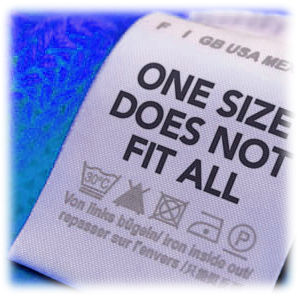 I am principal of a combined middle / high school. This configuration results in an odd combination of reporting periods that sees us generate reports at one level or another at six different times of the year. That makes for a lot of report cards for a principal to approve, but I intentionally make time to review every one. I look for patterns, anomalies, and use the reports as one of the many data sources to track school progress.
I am principal of a combined middle / high school. This configuration results in an odd combination of reporting periods that sees us generate reports at one level or another at six different times of the year. That makes for a lot of report cards for a principal to approve, but I intentionally make time to review every one. I look for patterns, anomalies, and use the reports as one of the many data sources to track school progress.
Report cards comments can provide important insight into a student’s learning, provided that teachers use that limited space to concisely capture some key observations. As a principal, it is my job to work with teachers to develop their skills in this area.
Some comments are utterly useless. “Good work” or “this student is a pleasure to have in class” provide no insight into learning. Fortunately, I do not normally observe that sort of commentary on the reports. However, I have most definitely seen a shift in the types of things that have been written over the last few years.
I was particularly inspired when I read one particular comment on the recent reports. I know what you’re thinking: Who but a school principal could possibly ever be inspired by a report card comment? But here is what it said:
“In collaboration with his teacher (name of student) needs to seek out opportunities where he can verbally explain his thinking to meet outcomes and show evidence of his learning.”
What struck me was how this reflected a particular segment of our teaching and learning journey; the shift from compliance to learning.
It was not all that long ago that marks were largely influenced by how many assignments students completed, whether they showed up to class on time, and the degree to which they did precisely what they were told to do. Without diminishing the importance of demonstrating responsible behaviour, those things did not necessarily indicate the degree to which a student met the outcomes of the course.
I am satisfied that we as a school have long moved away from compliance to a focus on learning outcomes. But the teacher’s comment provides an indication that we are progressing even further in that direction. Not everyone is best able to demonstrate their learning through writing. For those, pencil and paper tests are the wrong vehicle. If a student is able to fully accomplish via speaking the same thing that another student is able to accomplish through writing, why would we withhold recognition of that learning?
Yes, students need to know how to write, but we ignore the diversity of our learners if we only accept limited ways of showing knowledge of learning outcomes. Inviting a student to verbalize his understanding of the course outcomes, and accepting that as evidence of learning in the same way we would accept a test score demonstrates a sophisticated understanding of assessment and respect for each unique learner.
Our journey will continue, but I am encouraged by the progressive thinking of educators who acknowledge and respond to diverse learning styles and invite students to travel meaningful paths to “show what they know”.